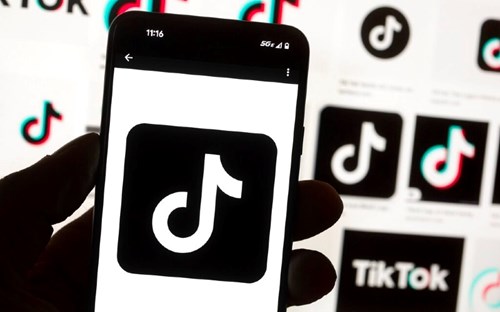The House Committee on Energy and Commerce advanced the bill last week, and it could reach the floor for a vote this week, House Majority Leader Steve Scalise said. President Biden has said he'll sign the bill if it reaches his desk, Axios reported Monday.
The FBI has long warned of a surveillance threat posed by the Chinese Communist Party through TikTok's parent company ByteDance, and a former ByteDance executive claimed last year that the CCP "maintained supreme access" to company records.
Still, H.R. 7521 – a bill that would force TikTok to sever ties with the CCP – has some opponents, including former President Donald Trump.
Gordon Chang, a Gatestone Institute senior fellow and China expert, said on Washington Watch Monday that support for Beijing crosses party lines.
"It's not just Marxist Democrats. It's also conservative Republicans who have very different reasons but support Communist Party narratives," he stated.

"We've got to make sure that people start to understand that national security issues must predominate because we have an enemy that is trying to destroy our society. We cannot allow ideologies or even this notion of free trade to prevent us from defending ourselves," Chang told show host Jody Hice.
Sen. Lindsey Graham (R-South Carolina) and Rep. Adam Schiff (D-California) could line up on the same team on this one, according to their comments on NBC's "Meet The Press," Sunday.
Graham said he's "definitely conflicted" and argued that some sort of action short of a total ban would be a good thing. Schiff noted privacy and security concerns, but asked "is there a way to meet those without banning a whole platform that millions of people like using?"
The TikTok threats are obvious, but their goals may be more subtle, Chang said.
"It steals data from 170 million devices in the United States, and Beijing uses it to propagate its narratives. It's not just Russian disinformation about the Ukraine war or what Beijing thinks on a particular topic. It's things like promotion of illegal drug use, self-harm, all of these social issues that China wants … to actually destroy a generation of American youth," he said.
The last strong stance against China
According to Chang, the U.S. finds itself in this predicament because no president since Dwight Eisenhower has gone on record to state China as an enemy of the country. Some historians believe Eisenhower's subtle threats to expand the Korean War into China and possibly use nuclear weapons played a key role in ending the conflict.
"Matter of fact, President Biden won't even call them an adversary. He just says they're a competitor. Well, they're not competing with us within the existing international system," Chang said.
National security expert Bob Maginnis admits he's not surprised liberals and conservatives alike have fallen victim to TikTok – some of them even being paid to endorse it.

"The Biden people use it for their political campaigns, and they don't seem to be serious about geopolitical threats to the United States," he argues. "After all, we have an open border and we're cozy with a host of tyrants." Yet Biden's own Defense Department has banned the app from its devices.
Maginnis agrees with Chang in that China is using the app to transform the hearts and minds of America's youth.
"[They are delivering] messages that would persuade them not to believe alternative views about China's prowess around the world," he tells AFN. "It's very, very subtle – and that's the problem: psychological warfare has always been subtle."
Unpredictable Xi Jinping
The TikTok conversation comes at a time when China has increased military spending by 7.2% to more than $230 billion for 2024 even though its own economic growth misses target goals.
"A lot of people have been ignoring that fact," Chang said. "We don't know exactly how fast China's military spending is [growing]. We know what they tell us, but it's probably not what they tell us. It's been evident for quite some time that Chinese military spending and the increases in the military budget are much higher than increases in the Gross Domestic Product – which means China, I think, eventually is going to run out of money."
Growing financial pressure in China makes CCP head Xi Jinping less predictable and more dangerous, Chang added.
"It's not just the military. It's roads, it's internal security. It's all the other projects they have," he explained. "That means that Xi Jinping must see a closing window of opportunity, and if he doesn't move soon he will not be able to move at all. That means he could take us by surprise."







